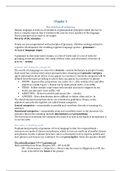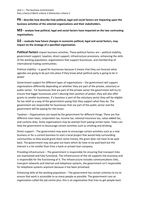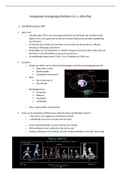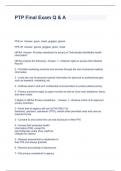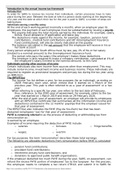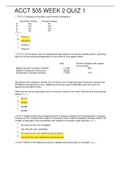The structure of sentences
Human language is built on a foundation of grammatical principles which interact to
form a complex system that is wielded with ease by every speaker of the language.
These principles don’t have to be taught.
Poverty of the stimulus
People are pre-programmed with principles of grammar. Children undergo extensive
cognitive development, the resulting cognitive language system = grammars =
biological language organ.
A grammar in this sense must contain: a) a list of words and b) a set of rules for
grouping words into phrases. The study of these rules, and of sentence structure in
general, = syntax.
Lexicon and syntactc categories
The words of a language are stored in a lexicon = mental dictionary in people’s brains.
Each word has a lexical entry about pronunciation, meaning and syntactic category
(gives information about where it can appear in a sentence). Syntactic categories will be
defined henceforward according to where they can appear in a sentence or phrase:
NOUNS - Appear after preposition (on, under etc.) , after articles (the) and after
adjectives (small, big etc.). Nouns can be made plural with (-s) as suffix.
VERBS - Follow modals (may/must/will/should) and can be negated by not.
Verbs can take past-tense suffix (-ed)
ADJECTIVES – Between articles and nouns (the … clouds)
ADVERBS – Has a distribution that is difficult to define, often end in –ly.
The distributional descriptions above are intended as guidelines. Nouns, verbs,
adjectives and adverbs together are called lexical categories.
Lexical categories = semantically contentful and contribute directly to meaning of a
sentence.
Functional categories = semantically weak and contribute more to the structure of a
sentence than to the meaning. Include determiners and prepositions.
The best way to determine the category of a word is to look at the kinds of morphemes it
co-occurs with.
The rules: a startng point
Fundamental property of grammar of every language is that it is compositional =
sentences are made of clauses and phrases, which in turn are made up of smaller clauses
and phrases/words. A phrase structure rule is a descriptive tool to express pattern and
how phrases and clauses are combined. It is not prescriptive (what the speaker should).
The adorable puppy licked a grumpy cat
Both underlined are Noun Phrases (NP) – NP verb NP
NP > (Determiner) + (Adjective) + Noun (only the noun is obligatory in a NP, the
noun is therefore the head of the phrase.


